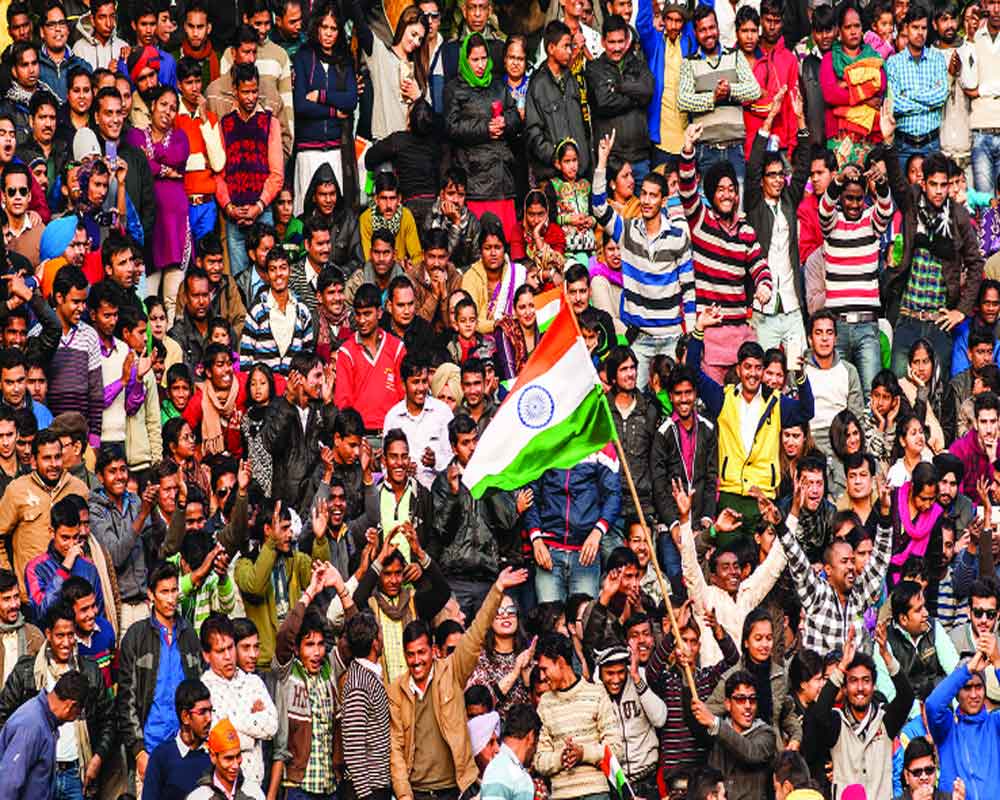The recent narrative of India not being one entity is based on historical distortions, designed to undermine India’s unity by sowing seeds of division
From north to south, from east to west India is one. All the people living in this sub-continent consider themselves to be Indians with diverse religions, castes, languages, regions, dress and food. Vishnu Purana states: ‘Uttaram Yat Samudrasya Himadreshchaiva Dakshinam. Varsham Tad Bharatam Naam Bharati Yatra Santatih.’ Its meaning is that the land situated north of the sea and south of the Himalayas is called the land of Bharat and the people living in this sacred land of India are called Bhartiya.
Different regions in India were indeed ruled by different rulers at different times. However, an unbreakable bond remained between all the people living throughout India. Our Jyotirlingas, pilgrimages and Dhamas, situated in different parts of the country are witness to the fact that all the Indians have been considering the entire nation as their Rashtra, and linguistic, regional, food and other diversities have never been any hindrance to the same.
During the foreign rule, such literature was published by the British government and false narratives were deliberately created by way of history writing, which poisoned the minds of the people of South India against the people of North India. Hostility towards the Hindi language was promoted in the southern states, more violently in Tamil Nadu.
It is said that this false story was started by a German orientalist and philologist. Today there is abundant scientific evidence that proves that the Aryan invasion theory is a complete myth.
Recently, a US magazine named The Economist has tried to create new definitions of division between North and South. The magazine tries to make a case that South Indian states are class apart, as just 20 per cent of India’s population lives in five southern states of Andhra Pradesh, Karnataka, Kerala, Tamil Nadu and Telangana, but these states receive 35 per cent of the total foreign investment coming into the country. These states have developed more than other parts of the country and whereas in 1993 these states generated 24 per cent of the country’s GDP, it has now increased to 31 per cent. 46 percent of tech unicorns are from South India and 46 percent of India’s electronics exports come from five southern states. Not only this, 66 per cent of IT services exports come from southern states, the magazine writes.
The magazine links the issue to politics and says that the ruling Bharatiya Janata party lacks a strong base in the southern states. The magazine also argues that therefore it can be said that the present government does not have the mandate of the entire country.
It is noteworthy that in the country where The Economist magazine is published, no Prime Minister has ever received a similar mandate from the entire country in the elections. Does that mean that the Prime Minister lacks the mandate of the entire country? In the history of democracy across the world, there are very few examples of a government being formed after receiving majority votes from all regions equally.
Similarly, some political leaders from south India are also promoting their separatist politics by putting forward similar arguments. We know that the development of many states was hampered due to some corrupt and incompetent leaders in the country, which included Southern states.
As far as development is concerned, among the ten states and union territories with the highest per capita income in the country, only two are from the South and that too at fifth and sixth position, and that too due to the IT sector, where people from all parts of India are working.
While the northern states have a significant contribution in providing food grains in our country, similarly the contribution of the southern states in providing industrial production, especially electronic and IT products, cannot be underestimated. In this way, India is like a family and all the states are its members. No one is big or small in the family; There is no consideration of rich or poor, and everyone works together and makes our integral family, that is Bharat, prosperous. People with political motives have now given yet another dimension to the North-South divide, by raising the issue of so-called unfair devolution of tax money to the Southern states. Notably, the tax share is decided based on recommendations from the Finance Commission.
During the proceedings of the 15th Finance Commission, these states expressed their grievance to the central government for having given the terms of reference, according to which the commission was given the direction for using population as per the 2011 Census, instead of 1971, used by previous finance commissions. They alleged that this would go against southern states since they controlled their population better than many other states. To address these worries, the 15th Finance Commission also gave weight to demographic performance.
Moreover, the share of Andhra Pradesh, Tamil Nadu and Kerala in total devolution of central taxes remained more or less the same in the 15th Finance Commission recommendations as compared to previous ones. However, the share of Karnataka came down to 3.64 per cent from 4.71 per cent and Kerala to 1.92 per cent from 2.5 per cent over these periods.
But apart from a share in central revenues, these states were given significant revenue deficit grants. This comes to Rs 30,497 crore in the case of Andhra Pradesh for 2021-22 to 2023-24, and Rs 1,631 crore for Karnataka for 2021-22. For Kerala, it was Rs 37,814 crore for 2021-22 to 2023-24 and Rs 2,204 crore for Tamil Nadu for 2021-22. Therefore, data doesn’t in any way prove the alleged bias by the Finance Commission. We must understand that on the issues of national integration and regional harmony, we should avoid such utterances.
(The writer is a professor at PGDAV College, University of Delhi, views are personal)


























